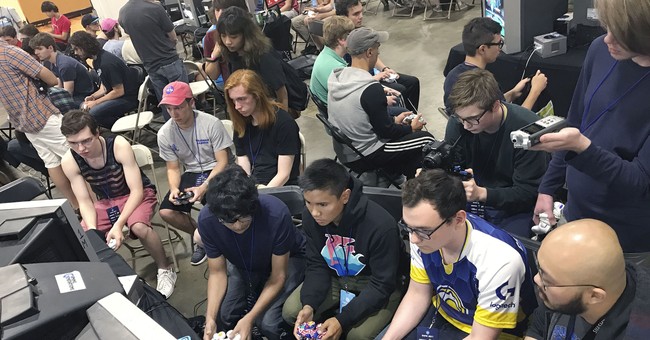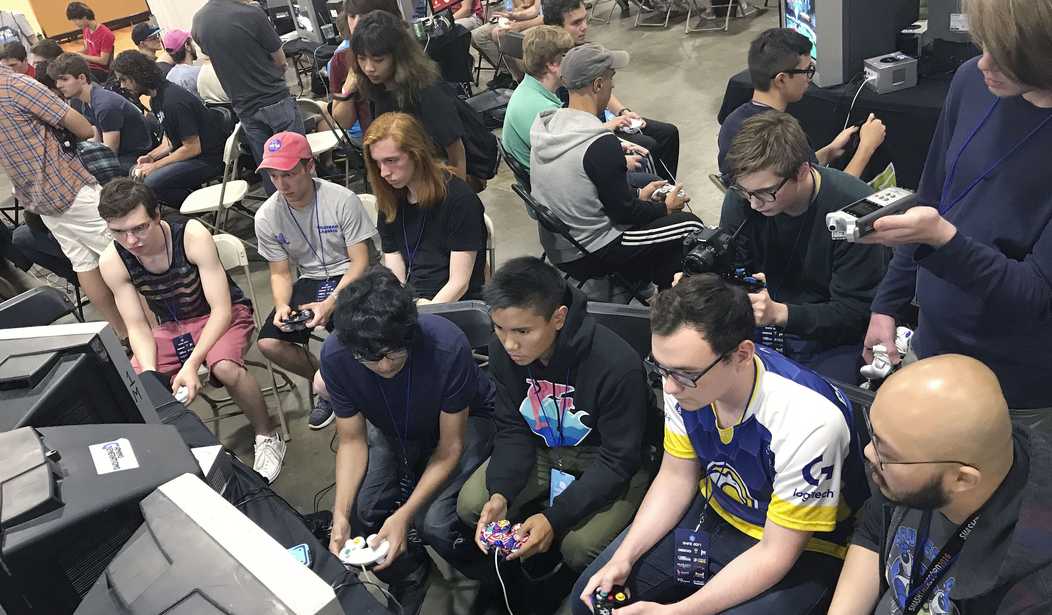
Many people my age grew up when video games were first making it into the mainstream. Atari and Nintendo systems were making their way into homes, bringing the arcade into the living room. Some of the first memories I have of bonding with my dad were him showing me how far he’d gotten in Mario.
Since then, I’ve watched video games go from being a fringe activity of sending a bundle of pixels from one end of the screen to the other, to watching them become a breathtaking monument of art and storytelling that has reached heights few would have guessed in the ’80s. Hollywood likes to believe that it’s the pinnacle of spectacle and storytelling, but it doesn’t hold a candle to today’s video games.
Consumers seem to agree. The gaming industry consistently outearns Hollywood and has done so for around a decade. As a rabid gaming enthusiast, I can attest that the gaming subculture is the blue whale of subcultures. In today’s world, it encompasses every demographic. Race, age, and sex all share an interest.
However, when it comes to video games, it’s a fact that men tend to invest a lot more time, energy, and enthusiasm into the hobby. This has held steady since the beginning of games as boys tended to gravitate toward the controller more often than girls did. It’s not entirely a mystery as to why, yet for some, it’s difficult to understand. Men’s attraction toward gaming is still looked down upon despite its commonality. Women, in particular, are often the first to express their displeasure in watching their men play.
Despite this, they still love to play? Why is that?
There are a lot of factors but one of the largely overlooked ones is the fact that our biology drives us there.
Men are natural problem solvers. We love competition, adventure, and danger. We love the idea of conquest, self-reliance, and being the hero. In a world so modernized that men find a lot of these things out of reach, video games scratch a very deep itch.
Studies have shown that men’s brains are far more stimulated by video games than women. One particular study by the Stanford University School of Medicine had men and women play a game of conquest. Men’s brains found the activity more rewarding than women’s. When the conquest aspect was taken out, there was virtually no difference according to CNN:
Researchers designed this video game with a specific “gain-loss” component, which is a fancy way of saying that players have to nuke the red dot before it gets too close to the wall. If you nuke the dot, you gain territory; the space on the left gets bigger. That’s the mission. If the ball hits the line before you nuke it, you lose territory. Researchers didn’t explain this goal to the players. They wanted their natural instincts to take over. Many would argue men, by nature, are more territorial.
Playing this well requires visual processing and good motor function, which is controlled by regions in the frontal lobes of the brain. Researchers had 11 men and 11 women play numerous 24-second intervals of the game while hooked up to a functional magnetic resonance imaging machine. That shows what part of the brain is working. Here’s what happened: The men ended up winning more territory than the women. Researchers think they know why: They found men had more activation in specific areas of the brain called the nucleus accumbens, amygdala and orbitofrontal cortex; the parts of their brain associated with reward. The amygdala and orbitofrontal cortex are also associated with the sight, taste and smell of food as well as to stimuli associated with food reward!
Men got more of a “reward” feeling than their female counterparts, and when the participants played a video game that had no territorial aspect, there was no difference in men’s and women’s brain activation. While this is obviously a new area of research and a small sampling, researchers say the gender differences may help explain why males are more attracted to video games and more likely to become “hooked” on them than females. It’s also interesting to note that the computer games that are popular with males are territory and aggression-type games.
Fascinatingly, women also love video games but their preferences gravitate toward community or home building games such as The Sims or Animal Crossing. Games like these tend to speak to the biological callings of women who put more emphasis on relationships and homebuilding.
While men do enjoy games like these, they’re more drawn to exploration and danger found in games like Call of Duty or the Legend of Zelda: Breath of the Wild.
Through video games, men get to live out biological urges such as exploration, combat, and heroism, all of which stimulate the sensation of being rewarded for accomplishing such tasks. It also allows men to find community with other men in these worlds, increasing the depth the game may provide. What’s more, these itches are scratched in a cost-effective and safe way, further making video games an optimal choice for escapism.
Some have argued, however, that games increase aspects of the male psyche to dangerous levels. Violence is often pegged as the result of playing too many video games which causes the line between virtual and reality to be blurred. Studies have shown this to be the opposite case. These studies include:
- A study by sociologist Whitney DeCamp and psychologist Christopher Ferguson of Western Michigan University.
- A study by Dr. Andy Przybylski, from Oxford University’s Oxford Internet Institute.
- A study by Dr. David Zendle at the University of York.
- A study by Dr. Gregor Szycik of the Hannover Medical School
These studies have shown that men who engage in gaming tend to see a lessening in aggression rather than an increase. Whatever steam needed to be blown off seems to be blown off within the virtual world.
Between being a healthy escape and an economic boon, men have a lot to love about video games. It’s true that it can become addictive and unhealthily engaged in, but that can easily go for almost anything. Moderation in gaming is as important as it is with alcohol, work, and food.
Men shouldn’t be looked down on for their attraction towards video games, especially as they become the great storyteller in our society, replacing movies and television which had replaced books.
Let them play.














